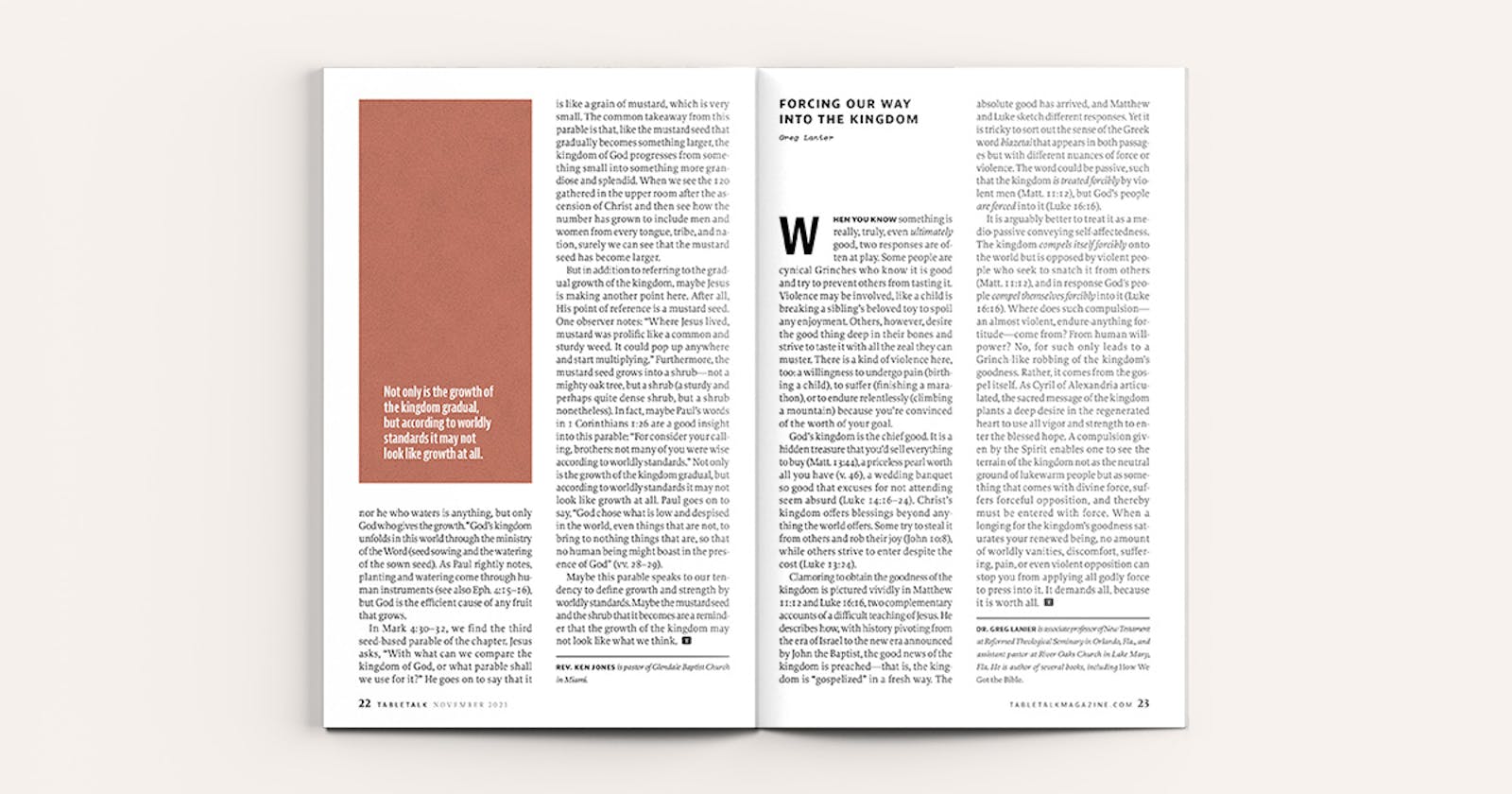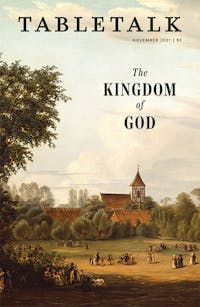
Request your free, three-month trial to Tabletalk magazine. You’ll receive the print issue monthly and gain immediate digital access to decades of archives. This trial is risk-free. No credit card required.
Try Tabletalk NowAlready receive Tabletalk magazine every month?
Verify your email address to gain unlimited access.
When you know something is really, truly, even ultimately good, two responses are often at play. Some people are cynical Grinches who know it is good and try to prevent others from tasting it. Violence may be involved, like a child is breaking a sibling’s beloved toy to spoil any enjoyment. Others, however, desire the good thing deep in their bones and strive to taste it with all the zeal they can muster. There is a kind of violence here, too: a willingness to undergo pain (birthing a child), to suffer (finishing a marathon), or to endure relentlessly (climbing a mountain) because you’re convinced of the worth of your goal.
God’s kingdom is the chief good. It is a hidden treasure that you’d sell everything to buy (Matt. 13:44), a priceless pearl worth all you have (v. 46), a wedding banquet so good that excuses for not attending seem absurd (Luke 14:16–24). Christ’s kingdom offers blessings beyond anything the world offers. Some try to steal it from others and rob their joy (John 10:8), while others strive to enter despite the cost (Luke 13:24).

Clamoring to obtain the goodness of the kingdom is pictured vividly in Matthew 11:12 and Luke 16:16, two complementary accounts of a difficult teaching of Jesus. He describes how, with history pivoting from the era of Israel to the new era announced by John the Baptist, the good news of the kingdom is preached—that is, the kingdom is “gospelized” in a fresh way. The absolute good has arrived, and Matthew and Luke sketch different responses. Yet it is tricky to sort out the sense of the Greek word biazetai that appears in both passages but with different nuances of force or violence. The word could be passive, such that the kingdom is treated forcibly by violent men (Matt. 11:12), but God’s people are forced into it (Luke 16:16).
It is arguably better to treat it as a medio-passive conveying self-affectedness. The kingdom compels itself forcibly onto the world but is opposed by violent people who seek to snatch it from others (Matt. 11:12), and in response God’s people compel themselves forcibly into it (Luke 16:16). Where does such compulsion—an almost violent, endure-anything fortitude—come from? From human willpower? No, for such only leads to a Grinch-like robbing of the kingdom’s goodness. Rather, it comes from the gospel itself. As Cyril of Alexandria articulated, the sacred message of the kingdom plants a deep desire in the regenerated heart to use all vigor and strength to enter the blessed hope. A compulsion given by the Spirit enables one to see the terrain of the kingdom not as the neutral ground of lukewarm people but as something that comes with divine force, suffers forceful opposition, and thereby must be entered with force. When a longing for the kingdom’s goodness saturates your renewed being, no amount of worldly vanities, discomfort, suffering, pain, or even violent opposition can stop you from applying all godly force to press into it. It demands all, because it is worth all.
